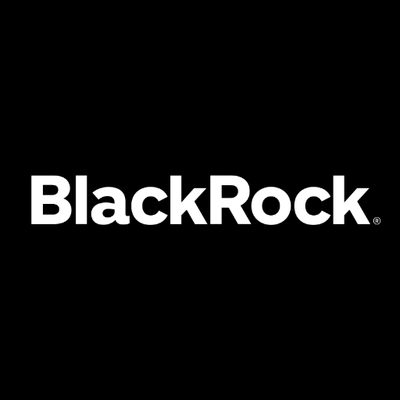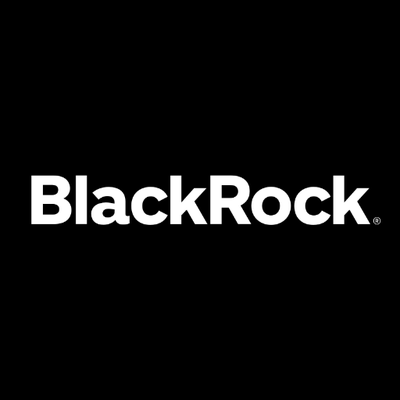BlackRock Income & Growth Investment Trust plc (LON:BRIG) has today provided the following portfolio update.
All information is at 30 April 2020 and unaudited.
Performance at month end with net income reinvested
| One Month | Three Months | One Year | Three Years | Five Years | Since 1 April 2012 | |
| Sterling | ||||||
| Share price | 11.9% | -17.0% | -14.0% | -8.0% | 3.6% | 64.5% |
| Net asset value | 5.8% | -18.0% | -14.5% | -8.4% | 5.2% | 53.9% |
| FTSE All-Share Total Return | 4.9% | -18.8% | -16.7% | -7.5% | 4.8% | 46.2% |
| Source: BlackRock |
BlackRock took over the investment management of the Company with effect from 1 April 2012.
| At month end | |
| Sterling: | |
| Net asset value – capital only: | 165.30p |
| Net asset value – cum income*: | 168.38p |
| Share price: | 164.00p |
| Total assets (including income): | £42.1m |
| Discount to cum-income NAV: | 2.6% |
| Gearing: | 3.9% |
| Net yield**: | 4.4% |
| Ordinary shares in issue***: | 22,605,600 |
| Gearing range (as a % of net assets) | 0-20% |
| Ongoing charges****: | 1.1% |
*includes net revenue of 3.08 pence per share
** The Company’s yield based on dividends announced in the last 12 months as at the date of the release of this announcement is 4.4% and includes the 2019 final dividend of 4.60p per share declared on 24 December 2019 and paid to shareholders on 16 March 2020, and the 2019 interim dividend of 2.60p per share declared on 25 June 2019 and paid to shareholders on 2 September 2019.
*** excludes 10,093,332 shares held in treasury
**** Calculated as a percentage of average net assets and using expenses, excluding performance fees and interest costs for the year ended 31 October 2019.
| Sector Analysis | Total assets (%) |
| Pharmaceuticals & Biotechnology | 9.0 |
| Household Goods & Home Construction | 8.1 |
| Food Producers | 7.4 |
| Support Services | 6.8 |
| Media | 6.5 |
| Financial Services | 6.5 |
| Mining | 5.9 |
| Oil & Gas Producers | 5.4 |
| Tobacco | 5.3 |
| Banks | 4.7 |
| Gas, Water & Multiutilities | 4.7 |
| Travel & Leisure | 4.5 |
| Food & Drug Retailers | 3.2 |
| General Retailers | 3.1 |
| Health Care Equipment & Services | 3.0 |
| Mobile Telecommunications | 2.6 |
| Life Insurance | 2.1 |
| Electronic & Electrical Equipment | 1.2 |
| Personal Goods | 1.2 |
| Industrial Engineering | 1.1 |
| Construction & Materials | 0.6 |
| Nonlife Insurance | 0.4 |
| Beverages | 0.4 |
| Real Estate Investment Trusts | 0.3 |
| Net Current Assets | 6.0 |
| —— | |
| Total | 100.0 |
| ====== | |
| Ten Largest Equity Investments | |
| Company | Total assets (%) |
| AstraZeneca | 7.1 |
| British American Tobacco | 5.3 |
| RELX | 4.9 |
| Unilever | 4.9 |
| BHP | 4.3 |
| Reckitt Benckiser | 4.2 |
| National Grid | 3.8 |
| Tesco | 3.2 |
| John Laing Group | 3.1 |
| Smith & Nephew | 3.0 |
Commenting on the markets, Adam Avigdori and David Goldman representing the Investment Manager noted:
Global equity markets rose in April. Remarkably, it was a month of both unprecedented global contraction in economic activity and yet strong “risk on” market sentiment, with the S&P posting its largest calendar month gain since 1987. The spread of COVID-19 remained the primary focus globally. The number of confirmed virus cases globally surpassed 4m, however, data indicated the curve of new cases began to flatten in most countries. Oil prices jumped sharply on news that Russia and Saudi Arabia had agreed to cut supply but then plunged into negative territory on the expiry of the May WTI (West Texas Crude Oil) future, as the lack of available storage meant investors holding the May contract would be forced to take physical delivery on expiry of the contract. Record-low Purchasing Managers Indices (PMIs) were reported globally, and unemployment rates rose at alarming levels. Global and national economic forecasters (IMF, OBR) updated their gloomy growth projections, capturing the beginning of the downturn in the developed economies. Despite continued uncertainty and disappointing economic activity data, the Volatility Index (VIX) remained in the range of 30 to 45 likely attributable to the announcements of further stimulus packages which came from the Fed (additional $2.3 trillion) and the euro zone (additional €500 billion). In the UK, composite PMI of 12.9 (from 36.0) was significantly below the prior low of 38.1, recorded in November 2008 during the Global Financial Crisis. Lockdown measures were extended after the hospitalization of prime minister, Boris Johnson due to severe coronavirus symptoms. Towards the end of the month, Chancellor Sunak confirmed that very small businesses will be offered loans of up to £50k with full state guarantees and no interest payable for the first 12 months. About 160 companies in the UK FTSE have now announced a cut or suspension to their dividends, including Shell’s first dividend cut since the 1940s. The FTSE All Share benchmark rose 4.9% in April with Technology, Consumer Services, and Consumer Goods as top outperformers while Oil & Gas was the top underperformer.
Over the month, the Company returned 5.8%, outperforming the benchmark, the FTSE All-Share which returned 4.9%.
The Company’s underweight holding in HSBC was the top contributor to performance. The company had been defensive vs other banks in the February and March market sell-off and has since caught up and underperformed the market. The Company’s underweight holding in Royal Dutch Shell also contributed to performance. Energy stocks underperformed generally, but the company also announced a cut to the dividend for the first time since the Second World War.
National Grid was the top detractor to performance. Utilities and other defensives underperformed a more constructive market environment. Standard Chartered also detracted as banks generally underperformed the market as investors feared large loan loss provisions and weaker than expected income growth.
During the month, we bought positions in United Utilities, Informa, Intermediate Capital and Big Yellow Group. We reduced our holdings in National Grid, ABFoods, Royal Dutch Shell and Hiscox and added to Next, Vodafone and British American Tobacco.
This Covid-19 led crisis is the closest we have got to a global natural disaster in financial markets, and its impact has been immediate and severe. Entire industries are being shut down overnight with revenues effectively going to zero. It has been felt much more acutely than anything we have seen in recent memory. Whilst in ‘normal’ economic downturns, activity slows gradually over months, with ‘lockdowns’ by governments, activity has slowed very dramatically with significant variations by industry and geography.
The hit to nominal GDP from this crisis is likely to be record breaking with early estimates suggesting falls of up to 30% in nominal GDP in a number of developed market economies for the second quarter. Whilst the scale of this crisis has been unprecedented, we have also seen extraordinary government intervention. This should provide a cushion to businesses that are being hurt by the impact of the shutdowns. As we start to ease past the current peak in this crisis, governments now need to determine how they modify their economic support as the impact on businesses and industries becomes clearer. Fiscal policy, for example, has played an earlier, and more prominent role versus the 2008 financial crisis and we expect to see more pressure on governments and central banks to deploy their balance sheets. The role and type of economic support is likely to lead to material dispersion within the market over the medium-term.
We recognise the enormous uncertainty still facing society, employers and their employees today. Whether it is the threat of a resurgence of the virus, the emergence of viable treatments and potential vaccines or the different speeds and ways in which governments remove restrictions and support. We are treading cautiously; balancing the significant long-term opportunity we see with a wide range of short-term scenarios and factors. Amongst these are clearly the impact of widespread unemployment, the changes to both consumer and business behaviour with regards to which products and services they consume and how they consume them in addition to the potential for inflation to pick up. Crucially, whilst we expect that the threat from Covid-19 will be addressed, either through a vaccine, rolling containment policies or herd immunity, it is the duration of the pandemic and associated containment policies that will be crucial in determining the state of the economy and speed of recovery thereafter.
In conclusion, we came into this crisis more defensively positioned and with limited gearing which benefited the Company and leaves us in a strong position to take advantage of the dislocation. In times like these, the scale and breath of the platform at BlackRock allows us to leverage significant resources across stock analytics, market insights and data science. For example, in the month of March, as the crisis unfolded and as 90% of the global workforce began working from home, the UK team still spoke with over 210 management teams; seeking to understand companies’ immediate liquidity needs, balance sheet strain and strategy to navigate the crisis. We know, from our experience in 2008/2009, how important these resources and support are and the opportunities it enables you to find. In the weeks and months ahead, we will continue to utilise these resources and our previous experiences in uncertain markets to continue to build on the promising start to the year to ensure the Company emerges from this period of volatility well placed to deliver strong capital and dividend growth over the long term.
18 May 2020
To learn more about the BlackRock Income & Growth Investment Trust plc please follow this link: blackrock.com/uk/brig





































